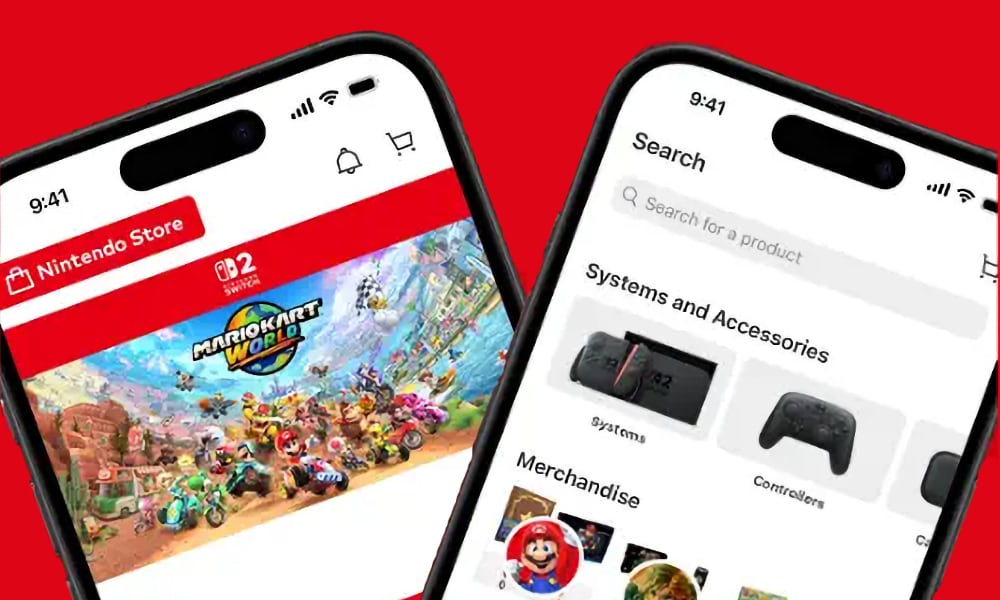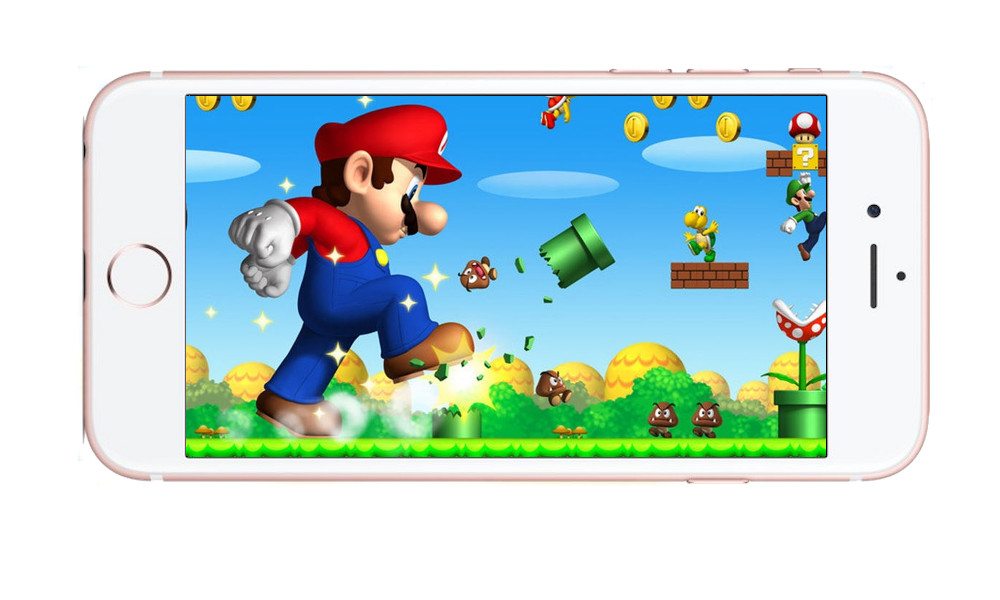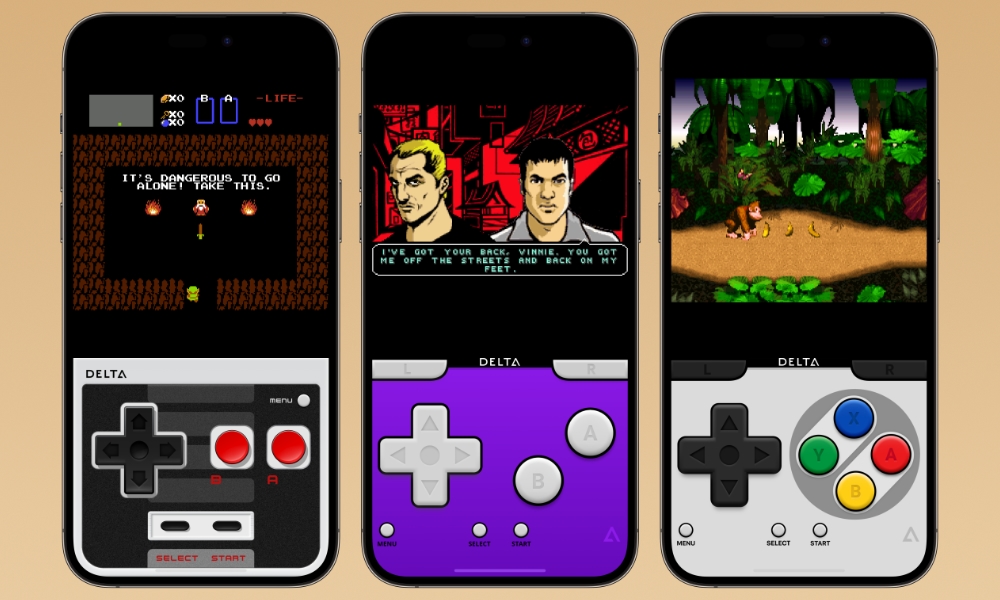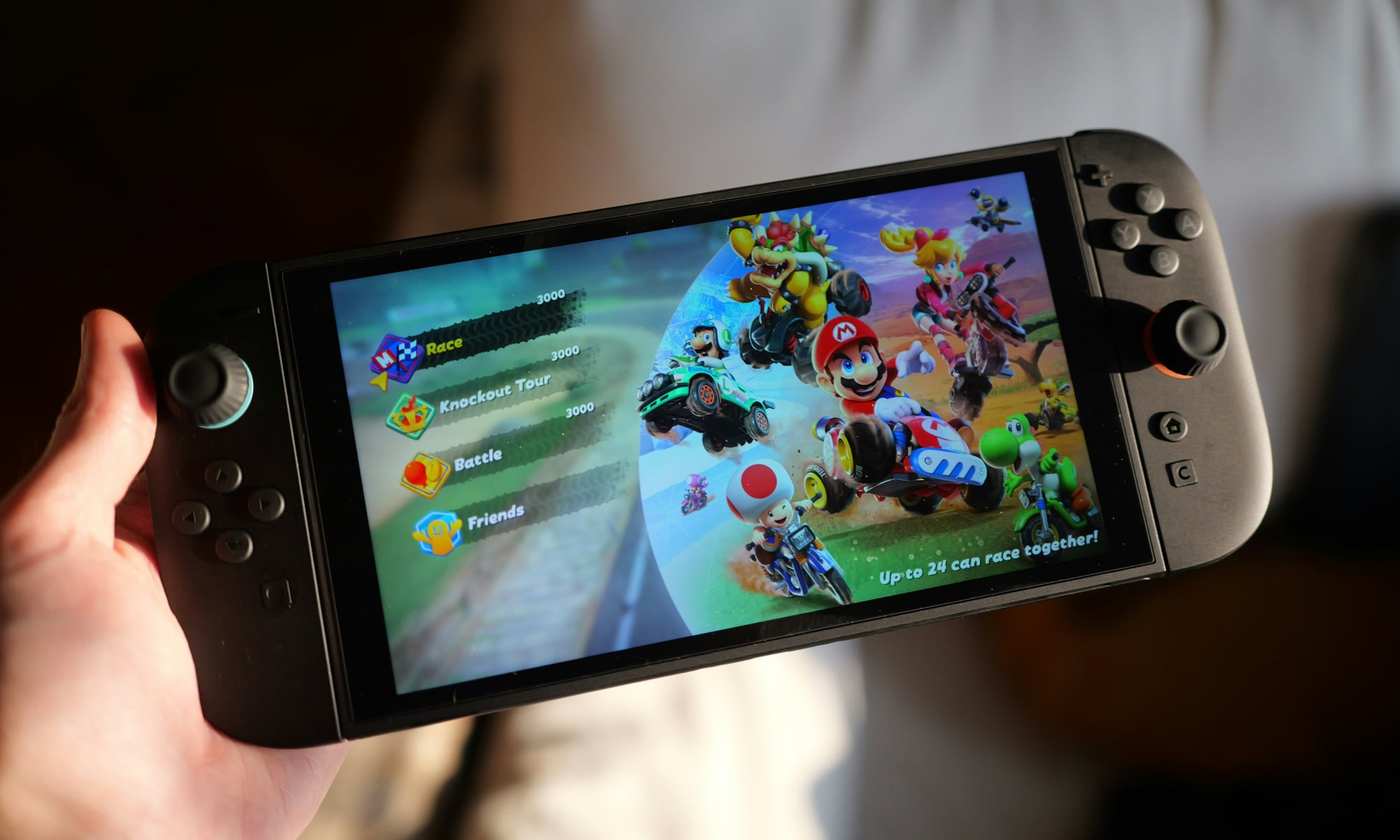Nintendo Launches Official Store App on iOS and Android

Toggle Dark Mode
In a landmark move for a company that once wanted nothing to do with the iPhone, Nintendo has launched its first official store app on iOS, giving fans an easy way to browse and buy everything from Switch consoles and accessories to physical and digital games.
The Nintendo Store is a free download from the App Store with no in-app purchases. That’s because Nintendo, like many developers, isn’t eager to hand Apple a 30-percent cut on the digital goods it sells. Physical products like consoles and cartridges fall outside Apple’s commission structure, but digital games would definitely come under that umbrella.
Hence, Nintendo’s app primarily serves as a catalog for browsing the store, letting users browse products and manage a wish list, while any digital or physical purchases redirect to Safari (or your default browser), bypassing Apple’s in-app purchase system.
The app offers several features beyond shopping. You can keep up with the latest news on what’s happening in the world of Nintendo. You can also sign in with your Nintendo Account to check your current Switch activity — or even see legacy data from the 3DS and Wii U era before 2020.
To be clear, this isn’t an “app marketplace” like the Epic Games Store or AltStore — it’s specifically designed for purchasing games to install on Nintendo devices, as well as other hardware and accessories. Still, it’s something that would have seemed impossible years ago, as Nintendo once saw Apple’s platform as a rival rather than a partner.
The gaming giant spent years resisting the iPhone, preferring to go its own way with dedicated hardware. As Apple’s platform grew to become the future of handheld gaming, Nintendo continued to hold out, with former company president Satoru Iwata reportedly calling Apple “the enemy of the future” in 2014.
Emulators Filled the Gap
For the first seven years of the App Store, Nintendo titles couldn’t be found anywhere except on its own platforms. That vacuum led to a vibrant grey-market effort to get its games onto the iPhone, including Riley Testut’s famous GBA4iOS in 2013, which became an overnight sensation.
Naturally, Nintendo took umbrage with the project, promptly filing a DMCA complaint to have it shut down for copyright infringement. Other emulators cropped up in GBA4iOS’ shadow, including Testut’s own revitalized Delta, which avoided Nintendo’s wrath by leaving users to obtain game ROMs on their own and now thrives on the App Store, along with other similar emulators.
Nintendo’s reasons for avoiding the iPhone weren’t solely about its bottom line. The Japanese game maker took great pride in its flagship game franchises, such as Mario and Zelda, and believed that they needed to be played on hardware designed by the company itself to avoid losing the “Nintendo essence.”
Ironically, Nintendo’s philosophy has long been similar to Apple’s — both companies insisted on controlling the entire user experience, from hardware to software. For example, some have argued that Apple should license macOS to white-label PCs, but it has refused to do so and actively pursued and shut down companies that tried to do it themselves and profit from the idea.
Nintendo Finally Dips Its Toe in Mobile

Nevertheless, Nintendo cracked the door open in 2015, announcing a partnership with the Japanese mobile developer DeNA to release five new mobile titles on the iPhone. Still, this wasn’t a capitulation to iPhone gaming — it was a marketing play to draw iPhone gamers into the Nintendo ecosystem by introducing them to Mario and the gang.
The initiative started slowly, with smaller titles like Miitomo, and peaked with Super Mario Run, which took a prominent place on stage at Apple’s 2016 iPhone 7 event when legendary Nintendo designer Shigeru Miyamoto stood beside Tim Cook to announce and show off the new flagship iPhone title.
Following that debut, Nintendo continued to cautiously dip its toes into the iPhone ecosystem, with additional titles like the top-grossing Fire Emblem Heroes, Mario Kart Tour, Dr. Mario World, Animal Crossing: Pocket Camp, and more. Not all of these have stood the test of time; some have been shut down entirely, while others still linger in forgotten corners of the App Store.
Back to Its Roots
Nintendo never intended to create a gaming empire on the iPhone. Its attempts were to give people a taste. It’s not entirely clear how that worked out, but the company’s 2020 decision to shift its focus back to the Switch probably says it all. In 2023, Nintendo’s president confirmed that “future Mario games will not be mobile,” and that the company plans to return to a focus on its own hardware.
The new Nintendo Store app reflects that same mindset: it’s a portal into Nintendo’s world, not a reinvention of it. Nintendo still isn’t embracing iOS as a platform — it’s simply building a bridge that lets fans browse from Apple’s devices, while keeping the true gameplay firmly on its own turf.









